#AutoSales
Bloated Auto Inventories Deflate Slightly
Due to weakening new-vehicle sales, the United States was staring down the barrel of near-record inventories a couple of months ago. Encouraged by the factory to ensure their lots were filled with the latest wares, dealers have watched their margins evaporate as employees and customers drowned in the sea of metal parked out front.
While still uncomfortably high, U.S. inventories started creeping back down in May. By the end of the month, the number of vehicles waiting to be adopted fell below 4 million for the first time since the beginning of 2019.
U.S. Auto Sales Continue Downward Slide, But Canada's Winning the Race
Compared to previous months, May was a great month for U.S. light vehicle sales. Volume almost broke even on a year-over-year basis, falling a mere 0.3 percent. Keep in mind that last year was a high water mark for the industry, and average transaction prices are nudging into premium territory.
Still, year-to-date sales are down in the U.S. to the tune of 2.4 percent, with May’s slim loss serving as the fifth consecutive monthly decline. To that, Canada says, “Hold my Molson.”
Florida Dealership Taps Ducks for Marketing Expertise
The last couple of weeks (and, um, stories) have been awash in negative press and bad vibes for Nissan. Fortunately, mother nature stepped in to help one Florida dealership restore the cosmic balance by having a family of ducks move in.
A few months ago, a nest of ducklings hatched outside Sutherlin Nissan Orlando. They decided to stick around, creating an interesting incentive for customers. While we doubt the company would implement new dealer conditions that mandate an on-site petting zoo, it could be a novel solution to its sales woes. After all, promoting dogs worked extremely well for Subaru. Maybe Nissan can become the duck brand.
Nissan Still Claiming Millennials Love Sedans
According to a study commissioned by Nissan, Millennials are committed to saving the sedan in an era when crossovers have usurped much of the market. While much of the study revolves around asking people whether they’d consider purchasing a sedan in the future — something any smart shopper would say “yes” to — survey respondents also said there was very little difference in terms of customer satisfaction between crossovers and sedans.
That’s good news for any automaker that launched a bundle of new and refreshed sedans over the past few years. Can you think of one?
Playing Both Sides: How Toyota Is Rolling With the Trade War Punches
While it’s difficult to muster sympathy for giant corporations, the trade war current raging between the United States and China has left many stuck in an industrial limbo. Automakers want a bigger slice of the global market, but putting your eggs in either country’s basket will result in repercussions from the other.
We’re not saying this to promote some kind of commiseration for multinational companies; rather, it’s simply to remind everyone of how the auto industry has to conduct its business. Frequently, carmakers must play both sides. Toyota, already one of the world’s largest automakers, knows this better than anyone, and new documents shed light on some of the cloak-and-dagger aspects of maintaining its high-volume position.
Subaru Struggles: Annual Profit Effectively Halved Due to Quality Control Issues
Subaru may be getting too big for its britches. Despite seeming like it was positioned for nearly incalculable growth at the start of last year, the automaker’s latest financial report showed the period was actually plagued with problems. Over the full fiscal year, which ends on March 31st for Subaru, the company basically showed that its operating profit had been cut in half.
How could this have happened? Subaru’s commitment to all-wheel drive has given its sales a shot in the arm as the crossover craze has escalated and it has one of the best reputations in the business. Seriously, ask any automotive layperson what they think of the brand and they will almost always have something positive to say. However, for all of its presumed advantages, the company is reporting a 48.5-percent decline in operating profit (to 195.5 billion yen) and a 6.3-precent loss of global sales volume.
April 2018 U.S. Auto Sales: Volume Shrinks, but New Crossovers Are a Hit
With an extra selling day compared to the same month one year ago, auto sellers in America had the chance to improve their numbers in April. Subaru, the two Korean brands, and Nissan all managed that feat, while the likes of Fiat Chrysler and Toyota did not. Honda, for one, was roughly flat.
It all adds up to a softening market impacted by rising transaction prices and higher borrowing costs. At this rate, there’s a very good possibility that total light-vehicle sales in this country will drop below 17 million this year for the first time since 2014.
The Kids Aren't Alright
For roughly the last decade, we’ve heard the motoring media bemoan Millennials as the generation that snubbed driving. Their inability to find and hold jobs that paid as well as their parents’ did at the same stages of life, combined with elevated costs of living and crippling student debt load, negatively impacted their purchasing power. Still, this generation might be just the tip of an iceberg the industry’s about to careen into.
As it turns out, Generation Z might even be less interested in cars. In addition to facing similar financial constraints as their older peers, most of them aren’t even bothering to get a driver’s license.
Ford's Mustang Bragging Brings Out the Best in Rival Automakers
Ford celebrated its iconic sports coupe’s 55th birthday at the New York International Auto Show this week by proclaiming Wednesday as “Mustang Day.” But Mustang Day was overshadowed by other nostalgic celebrations taking place at the New York Auto Show, specifically Nissan’s 50th Anniversary Editions of the GT-R (which looked excellent) and 370Z (which one of our anal-retentive staffers criticized over technical inaccuracies). The Japanese manufacturer even had a multi-tiered display and brought in historic models, countering the building apathy many automakers seem to have developed for giant trade shows.
Despite Nissan winning the battle for eyes in New York, Ford still appears to have won the day — at least from its own perspective. Following the NY debut of the Mustang’s 2.3-liter High Performance Package, which brings up the base auto’s peak output to 330 horsepower just for starters, the company proudly announced that its pony car has remained the world’s top-selling sports coupe over the last four years.
Chinese Auto Market Continues Its Decline; U.S. Future Also Looking Bleak
China’s auto sales declined for the ninth consecutive month in March, further proving that the market isn’t as infallible as once thought. The assumption was that, as North America surpassed peak growth and flattened out, Chinese auto sales would continue an upward trajectory. But, while China did surpass the U.S. in becoming the world’s largest auto market, it’s not living up to its billing as a golden goose.
That’s not to suggest the U.S. is about to stand triumphantly atop that mountain. Automakers are issuing profit warnings for 2019 and Moody’s Investors Service expects light vehicle sales to fall 1.2 percent this year.
“The accommodative financing environment that had helped buoy U.S. car sales is receding. Maintaining operating and financial discipline will be crucial [for 2019],” the bond credit rating business advised.
Dealer Check-up Reveals Widespread Profit Loss
U.S. light-vehicle dealers reported an operating loss for the first time since the National Automobile Dealers Association (NADA) began collecting data in 2009. While everyone continues reporting pretax net profits, concerns are beginning to swell around their dependency on factory incentives, which are not included in operating tabulations.
NADA’s analysis of 2019’s first-quarter auto sales shows that incentive spending is down compared to the same period a year ago. The group expects above-average discipline from automakers in terms of incentive spending throughout the year. According to J.D. Power, average incentive spending per unit was down $119 to $3,821 through March 2019 — with the brunt of that going toward trucks. However, if sales remain low, spending may creep back up to help clear out languishing inventories.
World's Largest Car Market Continues Tanking
After rising steadily for almost three decades, China’s end of the economic seesaw seemed to hit its maximum elevation early last year, thus kicking off a swift plunge. For foreign automakers hoping to cash in on a burgeoning middle class hungry for cars, lofty dreams were pared back.
New vehicle sales in the world’s most populous country fell for the first time in 28 years in 2018, and the first two months of 2019 show no change in the market’s downward trajectory.
FCA Fine Flying Solo, Equally Happy With Help
With Sergio Marchionne gone, most assumed Fiat Chrysler Automobiles would swiftly enact the late CEO’s plan to convince another automaker to partner with the company. Until recently, FCA was viewed as a dinosaur within the industry — limping along since its Fiat acquisition with a lineup of unpopular European imports and oversized American vehicles that couldn’t possibly endure tightening fuel regulations.
However, the reality turned out to be quite different. While Fiat’s volume in the U.S. fell from its 2014 peak of 46,121 units to just 15,521 deliveries in 2018, Dodge and Chrysler managed to endure their losses more gracefully, cutting less-profitable models from the lineup and focusing instead on larger vehicles requiring less pricey R&D. Meanwhile, Jeep rose like a phoenix from the ashes — with its annual volume going from 231,701 deliveries in 2009 to last year’s 973,227 units.
Parents Are Buying Loads of Cars for Their Adult Children
It looks as though more parents are increasingly paying for the transportation needs of their (sometimes very old) children.
Thanks largely to abandoning the important job of parenthood, a Bank of America survey a discovered small portion of adults between age 23 and 37 are now able to put away legitimate savings. However, the prevalence of student debt, low-paying jobs, and an increased cost of living has left many to continue scrimping and saving. In fact, most Millennials under 24 had less than $1,000 in their savings accounts, with nearly half having no savings at all. The former was also true for older members of the same generation. On average, it’s presumed that Millennials are earning 20 percent less than their Boomer parents at the same stage in life — despite being better educated, overall.
That’s causing future issues for the automotive industry. When Bankrate surveyed Americans to get their financial priorities on record last month, 23 percent of respondents specified that student-loan debt directly influenced their decision to delay purchasing a new car. Considering both monthly payments are frequently set to the tune of hundreds of dollars, that would make a lot sense.
Modern Times Spell Trouble for Mom-and-pop Auto Dealers
When I was a lad, there were two family-owned and operated dealerships within walking distance of my home. Upon reaching driving age, one had already closed while the other began adding storefronts in different towns. It now has three locations, ensuring a meaty inheritance and lifelong job security for several members of my graduating class.
It’s the nature of the free market and a familiar story. According to an assessment from the National Automobile Dealers Association, singular showrooms have gone from 7,514 strong to just 4,904 between 2008 and 2018. That’s a 35-percent decline, whereas the number of dealers with 10 or more stores increased 62 percent over the same period.




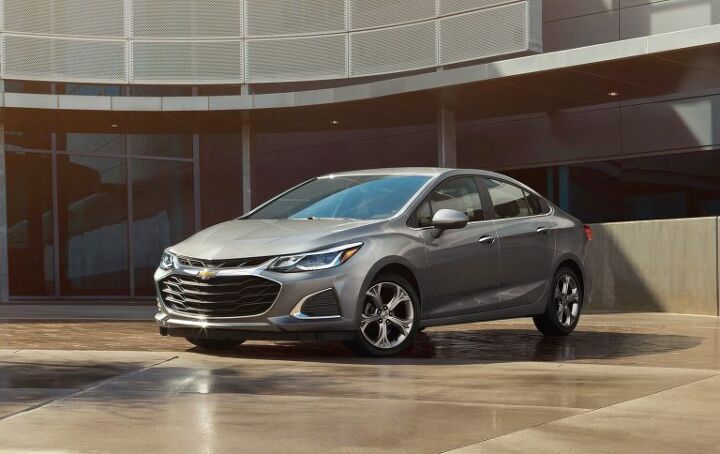






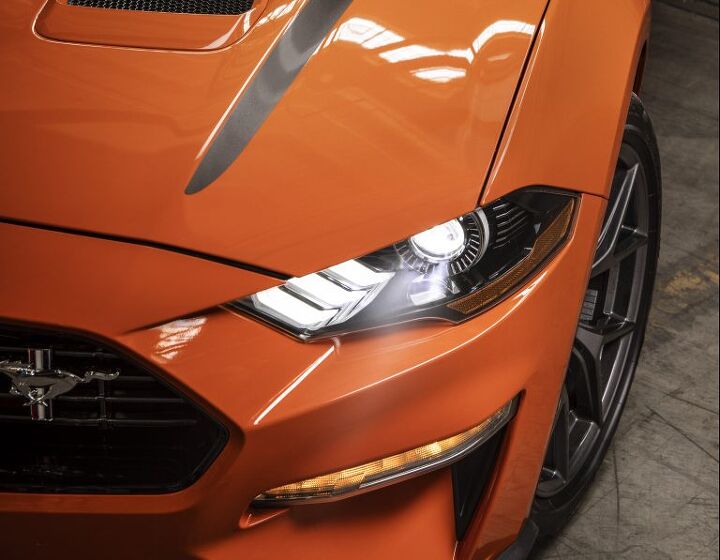

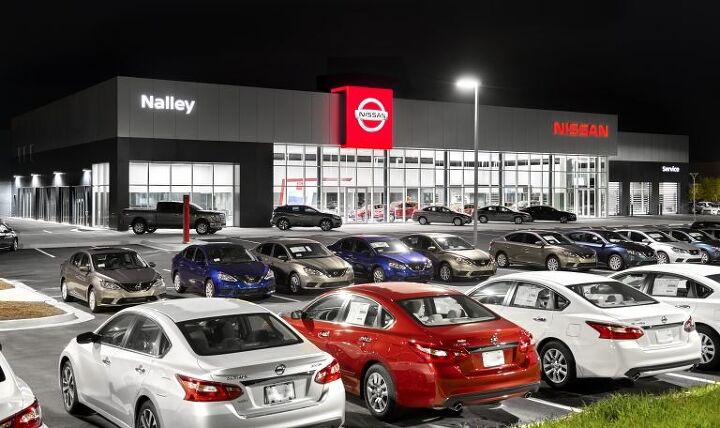
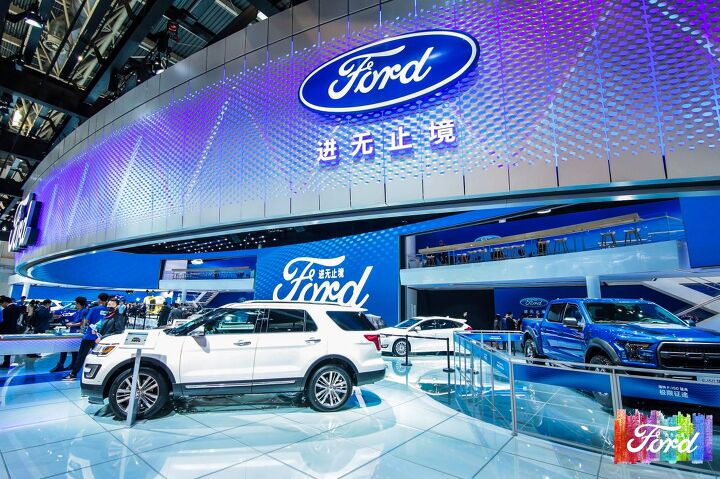

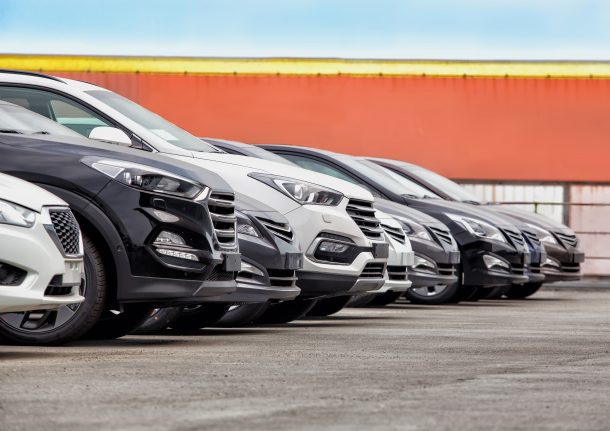













Recent Comments